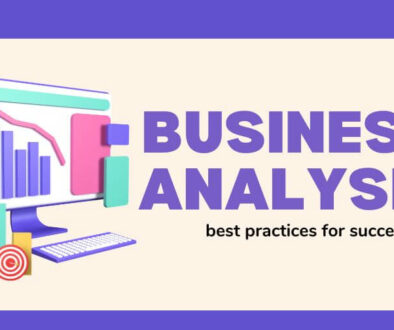How a Retail Management Platform Can Benefit Your Business
In today’s highly competitive business environment, the success of a retail business depends on how effectively it can manage its operations, inventory, and sales. With the rise of e-commerce and omnichannel retailing, retailers need a robust platform that can help them manage their business more efficiently.
A retail management platform can provide retailers with a range of tools and features that can help them streamline their operations, reduce costs, and improve their bottom line.
In this article, we’ll explore the benefits of a retail management platform and how it can benefit your business.
#1 Streamline Your Operations
One of the primary benefits of a retail management platform is that it can help you streamline your operations. A good platform can automate many of your manual processes, such as inventory management, order processing, and shipping. This can help you save time, reduce manual errors, and improve the efficiency of your operations.
#2 Inventory Management
Inventory management is a critical aspect of retail operations. A retail management platform like Vusion can help you track your inventory levels, monitor stock levels, and automate reordering. This can help you avoid stockouts, reduce excess inventory, and improve your overall inventory accuracy.
#3 Order Processing
Order processing can be a time-consuming and manual process. Thus, management software can help you automate your order processing, from order entry to fulfillment. This can help you reduce errors, improve order accuracy, and reduce the time it takes to fulfill orders.
#4 Sales Reporting
Retail management software can provide you with real-time sales reporting and analytics. This can help you track your sales performance, identify trends, and make data-driven decisions. You can also use these insights to optimize your pricing and promotions and improve your overall sales performance.
#5 Customer Management
Having competitive retail software can also help you manage your customers more effectively. You can use the platform to track customer behavior, analyze customer data, and personalize your marketing messages. This can help you improve customer loyalty, increase repeat business, and drive sales.
#6 Multichannel Sales
With the rise of e-commerce and omnichannel retailing, retailers need to be able to sell through multiple channels. A retail platform can help you manage your sales across multiple channels, such as online marketplaces, social media platforms, and physical stores. This can help you reach more customers, increase your sales, and improve your overall profitability.
#7 Improve Your Bottom Line
Ultimately, the goal of a retail management platform is to help you improve your bottom line. By streamlining your operations, improving your inventory management, automating your order processing, and improving your sales performance, you can reduce costs, increase sales, and improve your overall profitability.
#8 Increased Employee Productivity
A retail management platform can also help you increase employee productivity. You can automate repetitive tasks, such as data entry and inventory management, and provide employees with real-time data and insights. This can help employees make informed decisions, reduce errors, and save time on manual tasks.
#9 Integration with Other Systems
A retail management platform can also integrate with other systems, such as accounting software, payment processors, and eCommerce platforms. This can help you streamline your business operations and reduce manual data entry.
#10 Increased Efficiency and Cost Savings
By using a retail management platform, you can increase efficiency and save costs in several areas of your business. With streamlined inventory management, efficient sales management, and improved customer management, you can reduce waste, increase productivity, and save time on manual tasks. This can ultimately lead to increased revenue and profitability.
Things to Consider Before Buying a Retail Management System
If you’re running a retail business, you know how important it is to have a reliable and efficient retail management system. A good retail management system can help you streamline your operations, manage your inventory, and improve your overall business efficiency.
However, with so many options available in the market, choosing the right retail management system can be a daunting task.
Below are the things you need to consider before buying a retail management system for your business.
• Business Requirements
Business requirements refer to the specific needs and objectives of your business that the retail management system is expected to fulfill. Before selecting a retail management system, you should carefully evaluate your business requirements to ensure that the system can meet your needs.
Business requirements can include a variety of factors, such as the number of users who will be accessing the system, the types of products or services that you sell, the size of your business, and the volume of transactions that you handle.
• Scalability
A scalable system can handle an increase in business volume and transactions without experiencing any significant performance issues or downtime. When selecting a retail management system, it is essential to consider the scalability of the system. You should look for a system that can easily handle your current business needs while also being able to scale up or down as your business grows or changes.
A scalable system can provide significant benefits to your business, such as improved efficiency, reduced downtime, and increased productivity.
• Cost
Cost is a critical factor to consider when selecting a retail management system. The cost of the system can vary depending on various factors, such as the features, functionalities, and level of support and training provided by the vendor.
When considering the cost of a retail management system, it is essential to evaluate the total cost of ownership, including the initial purchase price, ongoing maintenance fees, and any additional costs for upgrades or customizations.
It is also crucial to consider any potential return on investment (ROI) that the system can provide, such as increased efficiency, reduced errors, or improved inventory management.
• User Interface
A good user interface should be intuitive, easy to use, and visually appealing, providing users with a seamless experience that helps them to navigate and use the system efficiently.
When selecting a retail management system, it is essential to consider the user interface and ensure that it meets your business needs. A well-designed user interface can help to improve user adoption and satisfaction, increase productivity, and reduce the learning curve for new users.
• Customization
A highly customizable system can help to optimize business processes and workflows, improve efficiency, and streamline operations. When selecting a retail management system, it is essential to consider the level of customization that the system offers.
You should look for a system that can be customized to meet your unique business requirements, such as modifying workflows, creating custom reports, or integrating with other software systems.
Customization can provide significant benefits to your business, such as increased efficiency, reduced manual effort, and improved accuracy.
• Integration with Other Systems
Your retail management system needs to integrate with other systems you use, such as accounting software, payment processors, and eCommerce platforms. Look for a system that offers integration with the systems you use, so you can avoid manual data entry and streamline your business operations.
• Support and Training
The system should have adequate support resources to help you troubleshoot any issues that may arise and ensure that your business operations continue smoothly.
A good retail management system should provide comprehensive training resources to help you and your staff understand how to use the system effectively.
The vendor should offer training programs such as webinars, online tutorials, and user manuals to ensure that you can use the system to its full potential. This will help you to optimize your business operations and improve your efficiency.
• Security and Backup
The system should provide adequate security measures to safeguard your business data and ensure that it remains confidential and protected from any unauthorized access.
A good retail management system should have robust security features such as password-protected logins, access controls, and encryption protocols to protect your data from cyber threats such as hacking, malware, and phishing attacks.
The system should also provide regular updates to fix security vulnerabilities and protect your data from emerging threats.
• Vendor Reputation
Vendor reputation refers to the perception that customers have of the vendor based on their experiences with the vendor’s products or services. In the case of a retail management system, it is essential to choose a vendor that has a good reputation in the market.
A vendor with a good reputation is likely to have a proven track record in the retail industry. They would have a successful history of delivering reliable, efficient, and scalable retail management systems to businesses like yours.
Choosing a vendor with a good reputation can help you ensure that you get a quality product that meets your business requirements.
Wrapping It All Up
A retail management platform can provide retailers with a range of tools and features that can help them manage their business more efficiently. From inventory management to order processing, sales reporting to customer management, a good platform can help you streamline your operations, reduce costs, and improve your bottom line.
If you’re looking to take your retail business to the next level, investing in a retail management platform may be the right choice for you.

I am the the Founder of SuccessGrid and I am so grateful you’re here to be part of this awesome community. I love connecting with people who have a passion for Entrepreneurship, Self Development & Achieving Success. I started this website with the intention of educating and inspiring people to always strive to Raise the Standards to Achieve Greatness.


